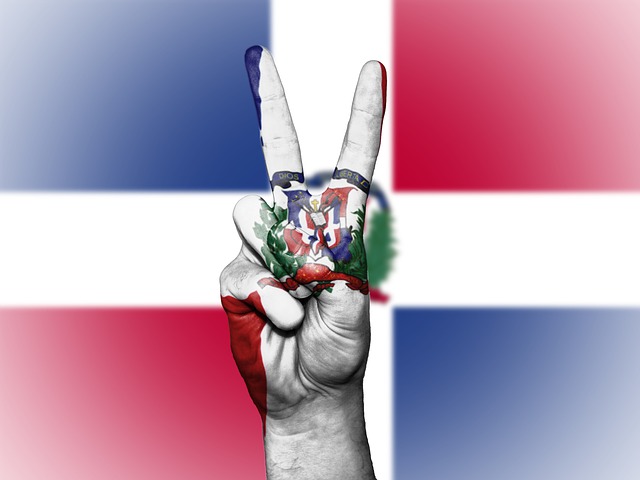10 English-Influenced Terms Unique to Dominican Spanish
Can we agree that languages are weird? They go through more experimental phases than the average teenager and tend to change before you can get a grasp on its current iteration.
The result? Strange, mixed breed words.
Take the Dominican Republic, for example. For one, there’s the mix of Spanish, African and Taíno culture that lends a lot of flavour to its brand of Spanish. Add to that an influx in Galician Spaniards and you have an accent that sounds closer to Portuguese than Castilian.
Photo via Pixabay
In essence, Dominican Spanish has been its own thing for a long time.
But did you know the United States occupied the territory on three separate occasions? The dates were 1904-1907, 1916-1924 and 1965-1966.
Of course, back in the day, the world wasn’t as Americanised as it is now, meaning Dominican natives couldn’t really understand the English words the US soldiers were speaking.
The phenomenon wasn’t exclusive to the Dominican Republic, as US occupations were numerous and prolonged in many other Latin American countries. That being said, some of the words found below are DR-exclusive, but don’t be surprised if you hear any given term elsewhere!
1. Gringo:
The term comes from the words “Green, Go” a common statement in Latin America demanding the exit of US military men dressed in green. It seems the little English the natives learned was immediately put into use to demand their independence. In recent times, “gringo” is used as an alternative to the imperialistic term “American” or on other occasions simply "foreigner".

Photo via Pixabay
2. Pariguayo
The Military used to throw parties for the US soldiers stationed in the island. In these parties you would find people who didn’t dance or engage in social activities, instead they would just watch. Do you see where this is going? A “pariguayo” is a “party watcher.” The term has since expanded to include a shy or gutless person in any given situation.
3. Guachiman
“Guachi” for short, refers to a watchman. Not the kind that plays music, but rather the security staff. Guachimanes in Dominican residential sectors usually work from 6 or 7 PM until the they’re replaced in the morning by the maintenance or cleaning service. For commercial locations, they might work all day or just the night shifts.
Learning a new language? Check out our free placement test to see how your level measures up!
4. Zafacón
An extremely Dominican word, “zafacón” comes from a US recycling campaign titled “Save a Can”. To this day, Dominicans seldom recycle and every trashcan is a “save a can” or “zafacón.” They’re working on it, though.
5. Jevi
Again, an exclusively Dominican word. We have no idea why people heard the word “heavy” and decided it was equivalent to “cool.” But that’s what it is.
6. Full
Same spelling, but we pronounce it differently and gave it a completely unrelated meaning. Full is another way of saying “okay,” and on some occasions also means that something is full. You know, for the sake of consistency.
7. Yanikeke
Do y’all know Johnnycakes? Yanikekes are our version of those, but they’re deep-fried and made out of flour instead of cornmeal. If you ever visit the Dominican Republic, you can get yanikekes from street vendors, usually outside of baseball fields and in rest spots by the interior highways.

Photo via Pixabay
8. Teipi
Most Spanish-speaking countries refer to tape as “cinta,” but apparently we forgot how to say that and just copied off of the soldiers. In fact, I think I’ve heard a Dominican person say “cinta adhesiva” just a handful of times. It’s also the kind of colloquialism that gets you in trouble when you’re speaking to someone from another Spanish-speaking country as they won’t know what you mean and you’ll struggle to remember the proper term.
9. Bufear
This one’s a verb, comes from “goofing,” and means virtually the same thing. As with many Dominican words, the verb can also become a noun as “bufeo”. “Bufeo” could be something that kind of tricked you or caught you off-guard, like a joke or video with an unexpected twist. “Bufear” would be the act of creating or sharing said unexpected content. If used in reference to going out, it means to go out and have fun. A similar word, “tripear,” comes from “tripping” and can be used in its place instead.
10. Cherchar
Another verb, referencing the act of chit chatting. Now, you probably won’t guess where the word comes from. The correct answer is “church,” as it came from the habit displayed by African communities in the DR who would stay behind and talk after church. Presently, “chercha” can be used with a gossipy or imprudent connotation. For instance, one can say a group of students are failing school because they’re always “cherchando” in class.
Can you think of any other Anglicised terms belonging to the Spanish language? Let us know in the comments!



